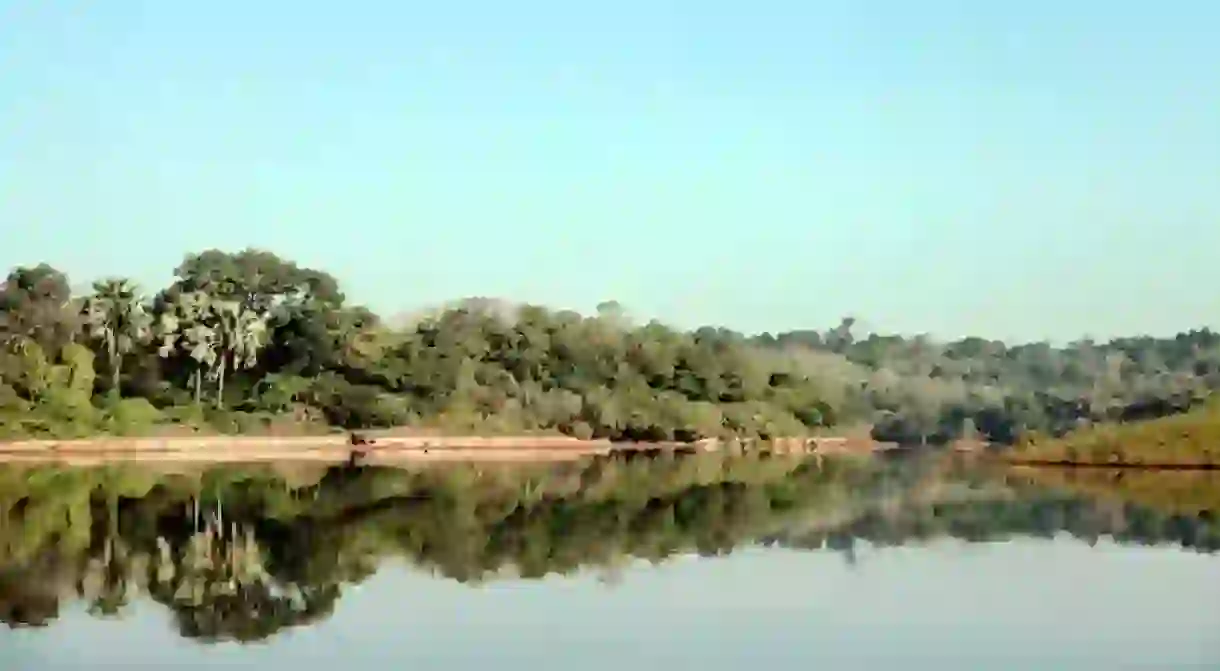A Beginner's Guide to The River Gambia

Credited as one of the most beautiful rivers in West Africa, the River Gambia and its impact on the socio-economic development within the country of The Gambia cannot be overemphasised. We take a closer look at what the river means to its people, in terms of agriculture, fishing, domestic chores and communication.
Background
Stretching some 1,100km (684 miles) from the mouth of the Atlantic Ocean at Denton Bridge to the interior where it gets its source in the Fouta Djallon highlands of Guinea, the River Gambia is the lifeblood of The Gambia. However, the history and uses of this highly navigable narrow passage in West Africa dates back centuries.

History reveals that it was because of the River Gambia that Europeans explorers were able to penetrate West Africa. The first foreigners to arrive in the country were the Portuguese, followed by several other European explorers including the Scotsman Mungo Park and Richard Jobson, a British explorer in 1588. When Jobson arrived in The Gambia, he journeyed through the River Gambia until he reached the east of the country from where he was able to draw the first map of Senegambia.
Agriculture
For several years, rural communities especially those which grow rice live and work depending on the uninterrupted source of fresh river water from the river to feed their crops. Agriculture being a key driver of the Gambian economy, contributes significantly to the Gross Domestic Product, generating about 40% of total export earnings. The River Gambia has been and continues to be the main source of irrigation for communities in rural areas, allowing for enhanced food production. It’s typical that at certain times of the year, especially in parts of the Central and Upper River Regions that the river becomes inundated with sea water. During this period, farmers make use of the river water by embarking on mass irrigation farming.

Fishing
The River Gambia is synonymous with fishing, and a good number of the population living close to the river make maximum use of it directly or indirectly. Fishing is another important local activity and is a source of employment for thousands of people living across The Gambia. Being an early occupation for many rural communities, the first settlers on the banks of River Gambia where the first to hone their skills. Because of the vitality and abundance of fish, strategic landing sites have sprung up along the River Gambia.

River transport
In the late 1970s when the first North Bank road was constructed, most locals didn’t see the need for a road at all. They were used to travelling everywhere by boat. To this day, you can depart from Banjul and in a few days you’re at the other end of the country. The River Gambia was and continues to be an effective transport system, transporting people and goods, delivering mail from Banjul to Basse, and even dispersing salaries to civil servants in the provinces.
With the introduction of roads this old means of transportation has witnessed a decline, but river transport is still the most popular choice for a whole range of commercial activities along the river in some river towns and villages in rural Gambia. In fact, it was because of the thriving nature of river transport that led to a surge in the number of villages and towns situated along the river. The river is also a key driver for tourism in the country, ferrying tourists up and down daily and exposing them to the wonders and beauty of the Gambian countryside.

Domestic uses
With the availability of fresh river water in parts of the Central and Upper River Regions, a good number of Gambians depend on the river for domestic needs such as drinking, cooking and washing. Meanwhile, some use the river water to process salt. This art provides both an important source of food and income for locals living along the river.













